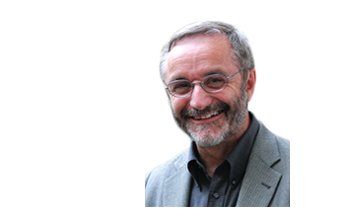Prof Rudi Balling is the Director of the Luxembourg Centre for Systems Biomedicine.
Can you summarise your career path?
- Study of human nutrition at the University of Bonn Fulbright scholar and Exchange student at Washington State University (WSU) Pullman, USA
- Master of Science in Nutrition, WSU and Diploma in Nutrition from Univ. of Bonn, both in 1981
- PhD in Reproductive Biology, Dept. of Anatomy, Medical School Aachen
- Postdoc in Embryology, Developmental Biology, Mount Sinai Research Centre, Toronto, Canada
- 5 years Young investigator at Max Planck Inst. of Bioph. Chemistry, Göttingen (with Peter Gruss)
- 3 years Group leader Max Planck Institute of Immunobiology, Freiburg (with Davor Solter)
- 7 years Director of Institute of Mammalian Genetics, GSF research Centre, Munich
- 9 years Scientific Director, Helmholtz Centre for Infection Research (HZI), Braunschweig
- 7 month sabattical at Broad Institute (Harvard, MIT, Boston, USA)
- Since 6 years Director of Luxembourg Centre for Systems Biomedicine
Where do your best ideas emerge from?
Discussions with excellent other scientists and reading literature out of my immediate scope.
Who or what had or has had the strongest positive influence on your career and work?
Mentors at the PhD and postdoctoral levels and being a member of world class laboratories at a young age.
What do you consider the greatest challenge or hurdle for progress in your field?
The ability to put back the ego for the advantage of collaborative team work at an interdisciplinary level.
What are, in your opinion, the opportunities, directions or decisions that are vital to progress systems medicine?
Bring in strong basis in mathematical modeling and simulation to tackle the pathogenesis of disease and developing new methods/algorithms in machine learning applied to medicine.
Tell us what would have to happen in your work for you to say “A dream has come true!”?
If we would be able to “really” understand the pathogenesis of Parkinson´s disease and Alzheimer´s disease and as a result would come up with a preventive or therapeutic strategy.
If you could not be a scientist, what would you like to be?
An antique book dealer.
What was your greatest experience as a scientist?
Figuring out the molecular basis of the Waardenburg syndrome.
With which historical person, politician or celebrity would you like to have a dinner and discuss your work?
Robert Hooke.
Would you be happy to share something about your private life and activities in your spare time?
I am a “reading addict”, like to collect old books and discuss about god and the universe.
